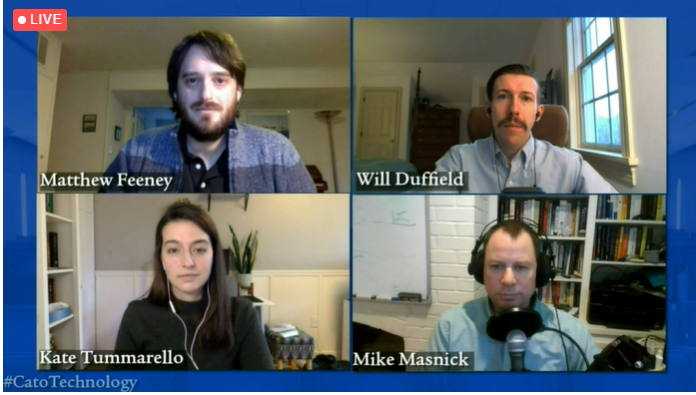Reforming Section 230 Will Benefit Some, Wound Others, and Confuse All
January 27, 2021—Legislation to change Section 230 of the Communications Decency Act stands to benefit some, wound others, and downright confuse all. Discussions over whether the Internet should be moderated, and how, ensued between a panel of communications policy experts during a Cato Institute we











Member discussion